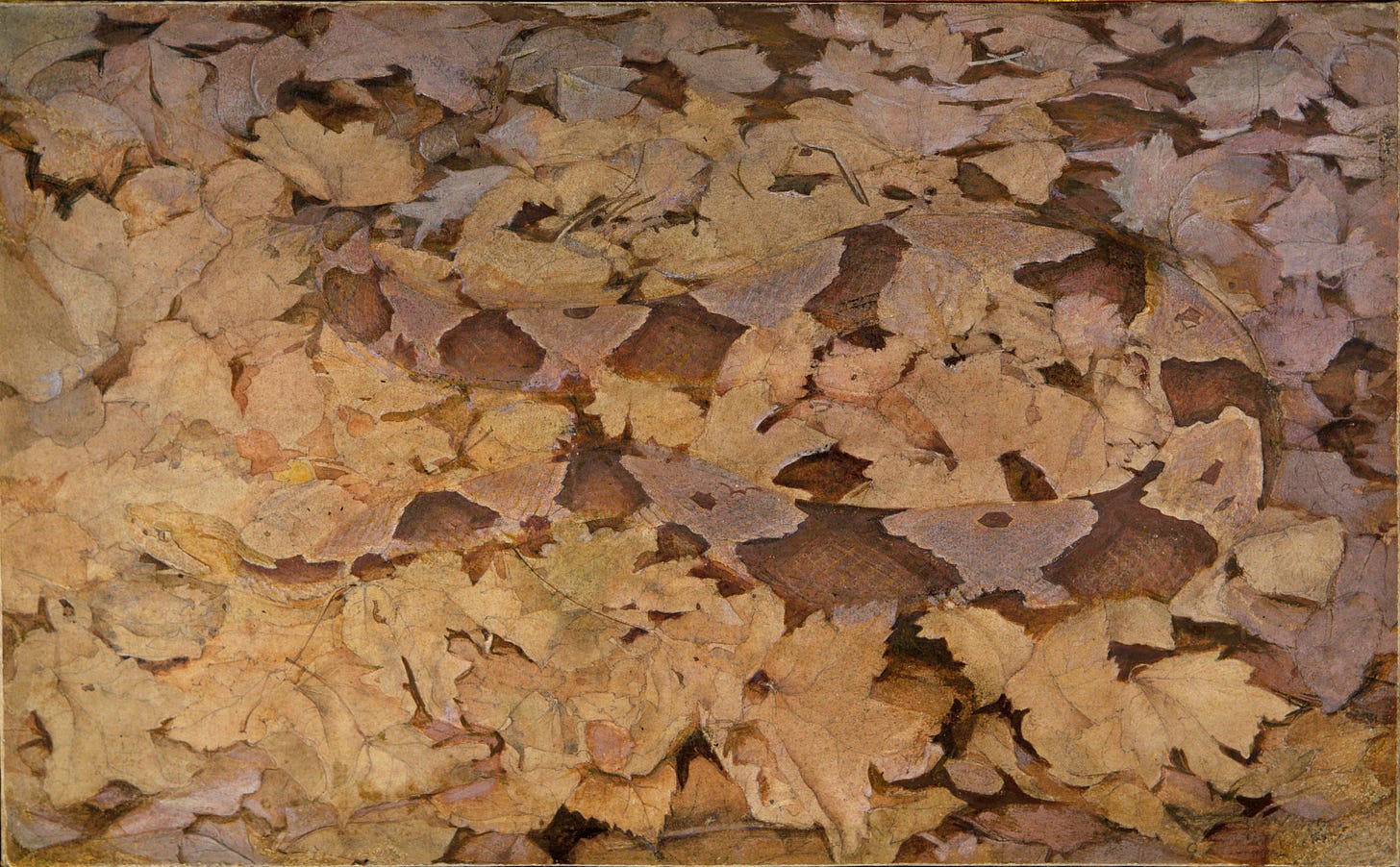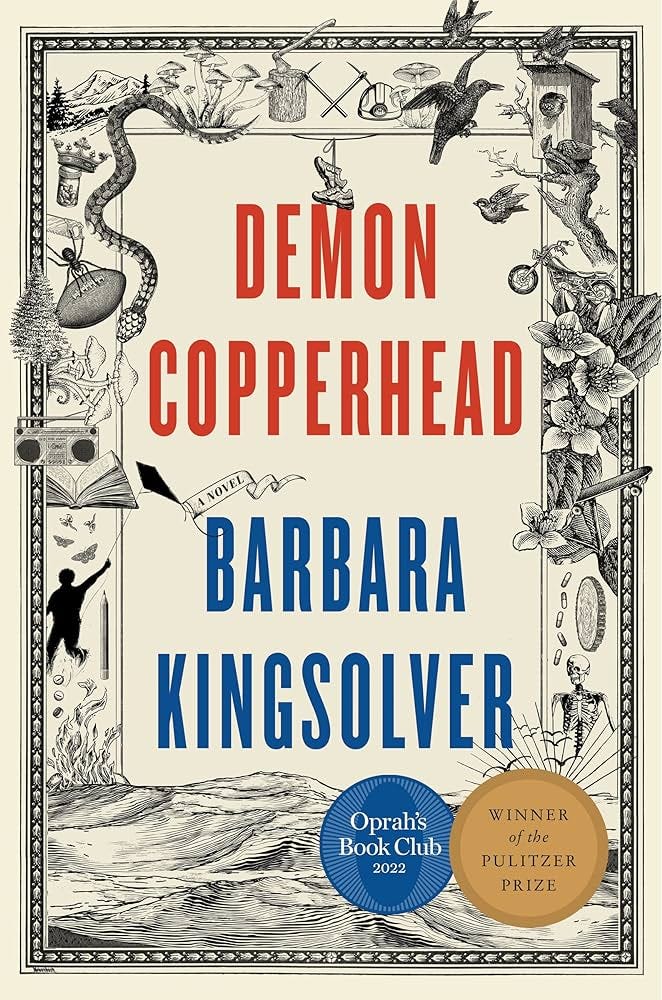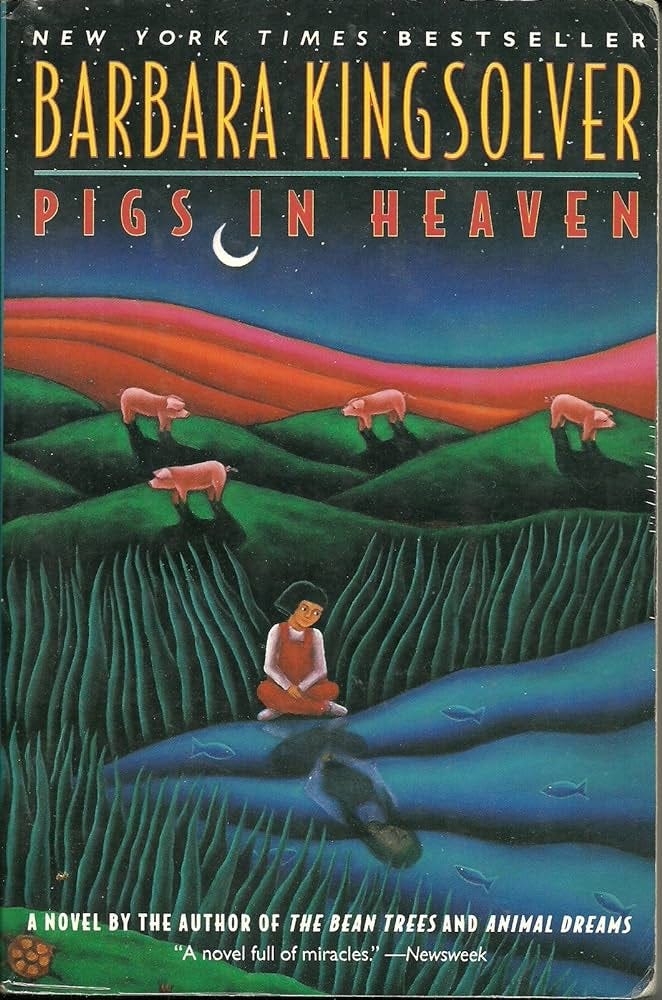What to Read Next: Barbara Kingsolver
Issue #342, featuring a preeminent modern author
Happy Friday, readers!
Somehow, improbably, school started this week and our household has officially survived summer. We squeezed everything we could out of our summer and had a ton of fun. The key to enjoying summer as a parent of young children is to just embrace a bit of chaos and know that the school year offers a great reset for routines and normalcy. Kudos to all you other parents out there who made it through summer!
This week, I’m featuring one of the preeminent modern chroniclers of American life: Barabar Kingsolver. If you haven’t read her work, do so pronto. If you have, I’d love to hear what you think!
Demon Copperhead
After reading The Poisonwood Bible with our book club back in February, I was a little leery of jumping into Demon Copperhead. Kingsolver’s story of a white evangelical family in the Congo was stunningly well-written, but heartbreaking and even bleak to a degree that I had somewhat of a hard time enjoying it. (That said, I still gave it 4.5 stars because the writing and style was that good.)
After Demon Copperhead came out, I heard it was similarly dark and so I stayed away for a while. Though that comparison mostly turned out to be true, my reaction to Demon Copperhead was completely different than that of Poisonwood. (My guess is that it’s because my own life experiences are much closer to Poisonwood than Copperhead.)
Modeled after Charles Dickens’ David Copperfield, which I haven’t read, Kingsolver’s narrative follows the life of a downtrodden, impoverished boy who does his best to make something of himself as he grows up. There’s domestic abuse, intense poverty, drug addiction, death — it’s all very heavy. But in this story, Kingsolver weaves in just enough hope, redeeming characters, and personal agency that I didn’t find the narrative to be overly dreary.
As she always does, Kingsovler creates a real sense of connection between the reader and the characters on the page. She demystifies Appalachia, rural living, and addiction far better than any non-fiction book I’ve read on those topics. Demon, Angus, and Maggot will stay with me for a long time.
Both Jane and I absolutely loved Demon Copperhead. I don’t hesitate to give it 5 stars, recommend it far and wide, and even prematurely give it a spot in my favorite reads of the year list. I can’t think of a more deserving winner of a Pulitzer Prize for Fiction.
Pigs in Heaven
The Bean Trees was the first Barbara Kingsolver book I read. I found it to be a lovely narrative about family and love, woven together in a compact and readable package. You could see Kingsolver’s sense of place already coming through, but she certainly wasn’t telling the king of dramatic, eye-opening, justice-laden story she’d quickly become best-known for.
With Pigs in Heaven, a sequel to The Bean Trees, Kingsolver started down the road that would eventually lead to Poisonwood and Copperhead. Fair warning, there are inevitably spoilers ahead for Bean Trees.
Taylor and Turtle Greer are happily living in Arizona, when a series of fateful events sends them down an unforgettable path of ancestral justice, empathy, and compassion. The problem was that when Taylor adopted Turtle, she didn’t have the explicit permission of the Cherokee Nation. When that comes to light, everyone’s life enters into a phase in which nothing will be left unchanged.
Kingsolvers characters and storytelling here are fantastic; what sets it apart from The Bean Trees is how deftly she navigates the delicate topics of cultural appropriation, the adoption of minority children by white folks, Native American displacement, and the complex interplay of all those issues. And this was in 1993! It definitely feels like it was ahead of its time in that regard.
Among Kingsolver’s works, Pigs in Heaven is the one I’ve probably heard the least about from everyday readers. That’s a shame because I think it’s a marvel of a story. Definitely read The Bean Trees first, but both are fully worth adding to your lifetime reading list. I’m about halfway through her books and I’m looking forward to finishing that list in the near future.
Thanks so much for reading. I deeply appreciate your time and inbox space.
-Jeremy




Pigs in Heaven is brilliant and one of my all time favorite novels. Bean Trees too. I love the way she writes about real political issues in her books without them ever becoming political.issue books. I liked Animal Dreams a lot too, a standalone love story set in the SW that I think came right after PiH. I loved her nonfiction books too, the essays of course bit also the family memoir Animal, Vegetable, Miracle.
You haven’t read David Copperfield yet? That should be remedied immediately.